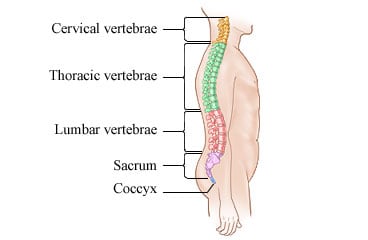Overview

A compression fracture happens when the front part of a spinal bone breaks and collapses. A fall or other accident can cause it. A minor injury or moving the wrong way can cause a break if you have thin or brittle bones (osteoporosis).
These types of breaks usually will heal within a few months. You may need to rest at first, but it's best to return to your normal activity as soon as you can. You may need medicine for pain. Your doctor may recommend physical therapy. Some doctors recommend that certain people with compression fractures wear braces.
Your doctor also may treat thin or brittle bones. You may need surgery if you have lasting pain or if the bone presses on the spinal cord or nerves.
You heal best when you take good care of yourself. Eat a variety of healthy foods, and don't smoke.
Follow-up care is a key part of your treatment and safety. Be sure to make and go to all appointments, and call your doctor if you are having problems. It's also a good idea to know your test results and keep a list of the medicines you take.
How can you care for yourself at home?
- Be safe with medicines. Read and follow all instructions on the label.
- If you are not taking a prescription pain medicine, ask your doctor if you can take an over-the-counter medicine.
- If the doctor gave you a prescription medicine for pain, take it as prescribed.
- Store your prescription pain medicines where no one else can get to them. When you are done using them, dispose of them quickly and safely. Your local pharmacy or hospital may have a drop-off site.
- Follow your doctor's instructions for rest and activity. If you have a brace, wear it as directed.
- Talk to your doctor about how to make your bones stronger. You may need medicines or a change in what you eat.
- Be active only as directed by your doctor.
Call 911 anytime you think you may need emergency care. For example, call if:
- You are unable to move an arm or a leg at all.
Call your doctor now or seek immediate medical care if:
- You have new or worse symptoms in your arms, legs, belly, or buttocks. Symptoms may include:
- Numbness or tingling.
- Weakness.
- Pain.
- You lose bladder or bowel control.
- You have belly pain, bloating, vomiting, or nausea.
Watch closely for changes in your health, and be sure to contact your doctor if:
- You do not get better as expected.
Where can you learn more?
Go to http://www.healthwise.net/patientEd
Enter P445 in the search box to learn more about "Compression Fracture of the Spine: Care Instructions".
Current as of: July 24, 2025
Author: Ignite Healthwise, LLC Staff
Clinical Review Board
All Ignite Healthwise, LLC education is reviewed by a team that includes physicians, nurses, advanced practitioners, registered dieticians, and other healthcare professionals.

